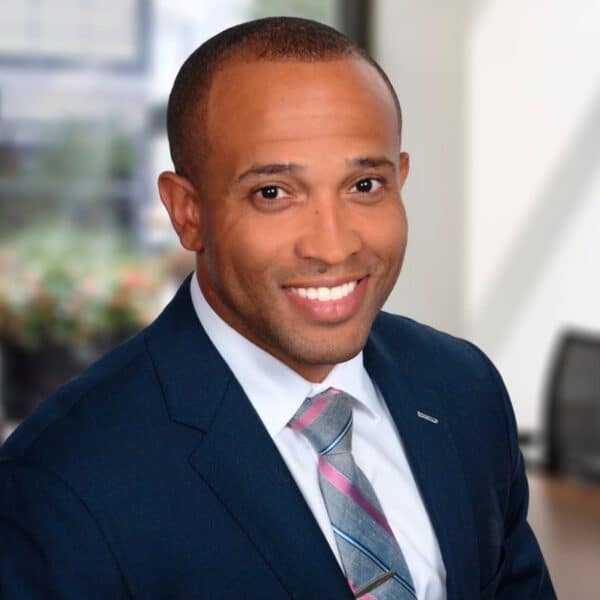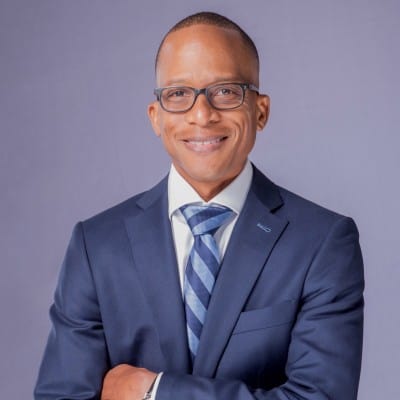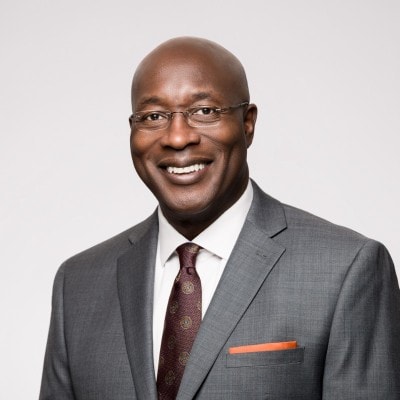
Find black financial advisors specializing in serving African Americans who can help with your financial planning needs so you can enjoy life more with less money stress.
As an African American, you may be thinking about hiring a financial advisor who understands your heritage, family priorities, and unique financial planning needs. Fortunately, an increasing number of financial advisors specialize in serving African American clients.
Before hiring a financial advisor, it’s important to first consider your own financial planning priorities. In this guide, we’ll share a few quick tips to help you get started in your search and introduce you to financial advisors featured on Wealthtender you may want to add to your shortlist.
Get to Know Black Financial Advisors for African Americans
📍 Click on a pin in the map view below for a preview of black financial advisors who specialize in serving African Americans and can help you reach your money goals with a personalized plan. Or choose the grid view to search our directory of financial advisors with additional filtering options.
📍Double-click or pinch pins to view more.
Smart Tips for Finding a Black Financial Advisor for African Americans
Before hiring a financial advisor, here are a few quick tips to help you find the best advisor for you.
1. Decide Which Services You Need
Before hiring an advisor, determine what services you need from them. Whether it’s full-service investment management or a plan focused on a specific area of your finances, put together a list of what you’d like help with before contacting an advisor.
Though most people use a financial planner simply to invest for retirement, this is only a small part of what many advisors offer. Here’s a quick rundown of potential services a financial advisor may offer you:
- Budgeting and money management
- Debt management
- Insurance planning
- Retirement planning
- Other investment planning
- Inheritance planning
- Estate planning
- Tax planning
As you can see, financial advisors can help you with your entire financial picture, not just investing. As you start to plan for life’s bigger milestones, you should consider finding a financial advisor that specializes in those areas.
Finding the right advisor can help you minimize risk, maximize gains and take advantage of tax breaks while investing for your future. They can also help you protect your assets with the right kinds of insurance and help you pass on your financial legacy with a proper estate plan.
2. Consider Your Budget and Payment Preferences
Once you have a list of services you would like, review the fee structures financial advisors offer. Finding a balance between the services you need and the cost of those services will help narrow down the field of advisors you may want to work with.
If you are looking for a full-service advisor to manage all of your investments, consider searching among fee-based financial advisors. If you want to manage your money yourself, consider the flat fee and monthly subscription advisors for ongoing support.
3. Interview Multiple Financial Advisors
Once you have chosen the services and fee structure you prefer, it’s time to contact a few advisors and interview them. Here are questions to ask financial advisors:
- What services do you provide?
- What are all the ways you get paid? (fee transparency)
- What is your investment strategy?
- How do you measure investment performance?
- How do we communicate about my plan?
Interview multiple advisors to get a feel for who you want to work with. A combination of fees, services, and customer service will help you determine the best fit for your financial advice.
4. Review Financial Advisor Credentials
Once you find an advisor (or two) you feel comfortable with, it’s always a good practice to check their credentials and the firm’s details. You can do this at the Investment Adviser Public Disclosure (IAPD) website.
You can check both the individual and the firm to view their background and experience details, as well as any disciplinary action taken against them or their firm.
As licensed financial professionals, there is oversight into how financial advisors conduct business, so running a quick (free) check on them is recommended.
For additional information about advisor credentials, read our article to learn the most popular designations held by financial advisors, as well as specialized credentials which may be important to consider if you have unique financial planning needs.
Quick Facts About African Americans
The following facts are possible thanks to U.S. Census Bureau surveys and the U.S. Department of Health and Human Services Office of Minority Health.
- 46.9 million: The Black or African American alone or in combination population in the United States in 2020.
- 89.4%: The percentage of African Americans age 25 and older with a high school diploma or higher in 2020.
- 30.7%: The percentage of the employed Black population ages 16 and older working in management, business, science, and arts occupations in 2019.
- 134,567: The number of Black-owned employer businesses in the United States in 2019.
- 3.2 million: The number of Black civilian military veterans in the United States nationwide in 2019.
The Top 10 States with the Largest African American Population
- Texas
- Georgia
- Florida
- New York
- North Carolina
- California
- Maryland
- Illinois
- Virginia
- Louisiana
Profile of Black / African Americans
Overview (Demographics): In 2019, 40.6 million people in the United States were non-Hispanic black alone, which represents 12.8 percent of the total population. Blacks/African Americans are the second largest minority population in the United States, following the Hispanic/Latino population. In 2019, most non-Hispanic blacks lived in the South (58.7 percent of the black U.S. population), while 35.8 percent of the non-Hispanic white population lived in the South. The ten states with the largest non-Hispanic black population in 2019 were Texas, Georgia, Florida, New York, North Carolina, California, Maryland, Illinois, Virginia, Louisiana.
Educational Attainment: In 2019, as compared to non-Hispanic whites 25 years and over, 87.2 percent of non-Hispanic blacks had earned at least a high school diploma, as compared to 93.3 percent of the non-Hispanic white population. 22.6 percent of non-Hispanic blacks had a bachelor’s degree or higher, as compared with 36.9 percent of non-Hispanic whites. More black women than black men had earned at least a bachelor’s degree (25.0 percent compared with 19.7 percent), while among non-Hispanic whites, a higher proportion of women than men had earned a bachelor’s degree or higher (37.3 percent and 36.5 percent, respectively). 8.6 percent of non-Hispanic blacks have a graduate or advanced professional degree, as compared to 14.3 percent of the non-Hispanic white population.
Economics: According to the Census Bureau in 2019, the average non-Hispanic black median household income was $43,771 in comparison to $71,664 for non-Hispanic white households. In 2019, the U.S. Census Bureau reported that 21.2 percent of non-Hispanic blacks in comparison to 9.0 percent of non-Hispanic whites were living at the poverty level. In 2019, the unemployment rate for non-Hispanic blacks was twice that of non-Hispanic whites (7.7 percent and 3.7 percent, respectively).
Insurance Coverage: In 2019, 55.9 percent of non-Hispanic blacks in comparison to 74.7 percent of non-Hispanic whites used private health insurance. Also in 2019, 43.5 percent of non-Hispanic blacks in comparison to 34.3 percent of non-Hispanic whites relied on Medicaid or public health insurance. Finally, 10.1 percent of non-Hispanic blacks in comparison to 6.3 percent of non-Hispanic whites were uninsured.
Health: According to Census Bureau projections, the 2020 life expectancies at birth for blacks are 77.0 years, with 79.8 years for women, and 74.0 years for men. For non-Hispanic whites the projected life expectancies are 80.6 years, with 82.7 years for women, and 78.4 years for men. The death rate for Blacks/African Americans is generally higher than whites for heart diseases, stroke, cancer, asthma, influenza and pneumonia, diabetes, HIV/AIDS, and homicide.
How Much Does a Financial Advisor Cost?
➡️ How Much Does a Financial Advisor Cost? Read the Article
🙋♀️ Have Questions About Financial Planning for African Americans?
Frequently Asked Questions & Additional Resources
How do I know if I’m ready to hire a financial advisor?
You should strongly consider hiring a financial advisor if you have a significant amount of money available for saving or investing. This could occur after years of making annual contributions to a retirement plan like a 401(k) through your employer or suddenly if you receive a large inheritance or sell your house for a large profit.
But even if you don’t have a lot of money saved, many financial advisors and planners provide reasonable pricing options and valuable services you should consider, especially if you’re facing a significant life event. For example, if you’re starting a new job, getting married, starting a family, getting divorced, lost your job, starting or selling a business, or approaching retirement age, working with a trusted financial advisor or planner may prove worthwhile.
Before I hire a new financial advisor, should I fire my current advisor?
You don’t need to fire your current advisor before beginning your search for a new financial advisor. In fact, your new advisor can help coordinate the transition of your assets from your previous financial advisor.
Where can I read reviews about financial advisors written by their clients to help me decide if I should hire them?
After 60 years of regulatory prohibition of financial advisor reviews in the US, a rule issued by the Securities and Exchange Commission (SEC) became effective on May 4, 2021 that means both financial advisors and directory websites that help consumers search for a financial advisor can collect and display financial advisor reviews, an important factor worth considering when choosing who you’ll hire to manage your investments and life savings.
Wealthtender is the first independent advisor review platform designed to be fully compliant with the new SEC rule, and we look forward to helping you evaluate financial advisors based on reviews written by their clients.
I’m a financial advisor interested in being featured in this guide. How do I get started?
Thanks for your interest. We look forward to learning more about your practice and helping you attract your ideal clients where you may be a good fit based on their individual needs and circumstances. Please click here to learn how you can join local financial advisors featured on Wealthtender.
About the Author

About the Author
Brian Thorp
Brian is CEO and founder of Wealthtender and Editor-in-Chief. He and his wife live in Austin, Texas. With over 25 years in the financial services industry, Brian is applying his experience and passion at Wealthtender to help more people enjoy life with less money stress. Learn More about Brian



































